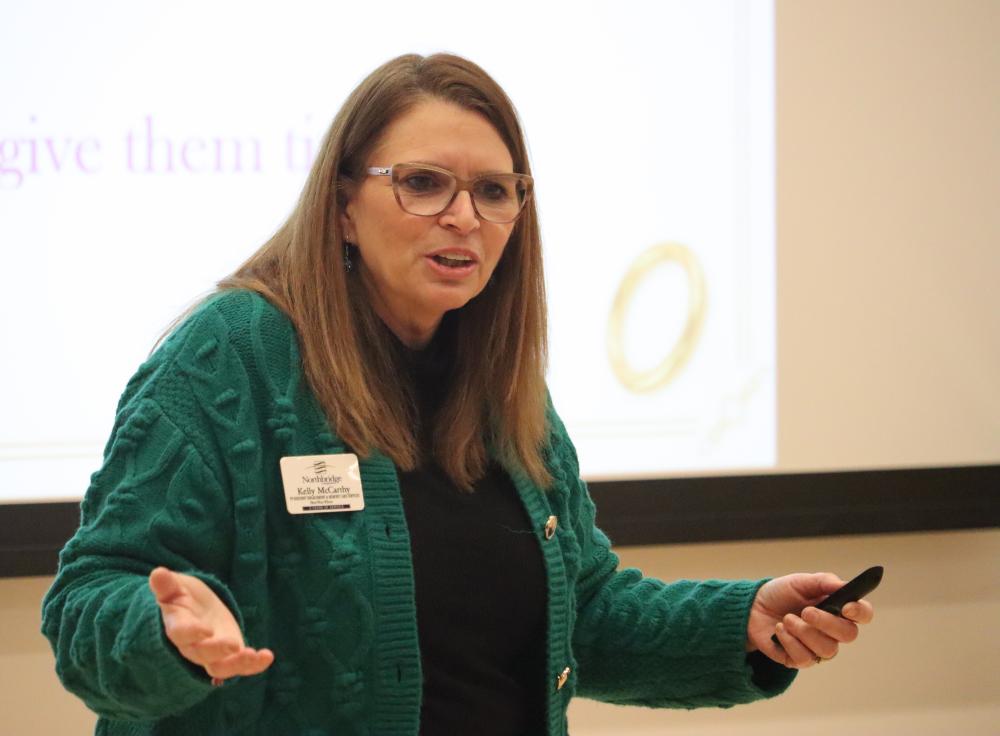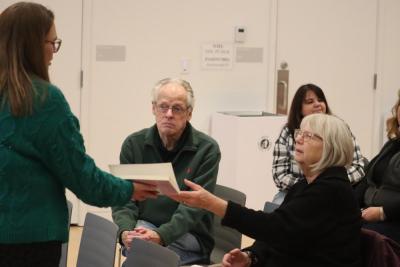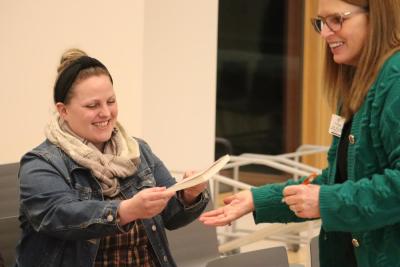‘They can still feel love’: Author on caring for people with Alzheimer’s, dementia
Alzheimer’s disease and dementia can be an immensely difficult experience for both caregivers and the ones receiving care.
At a book signing on Jan. 16 at the North Branch Library, author Kelly McCarthy shared her expertise on how caregivers can build compassionate relationships with people struggling with memory loss.
In her book, “Brass Ring Memoirs,” McCarthy explains the importance of providing non-judgmental care that uplifts and comforts someone with memory loss.
To do this, McCarthy explained that caregivers need to go beyond the obvious to learn as many personal details about the people they’re caring for to build a healthy, nurturing relationship.
Much like how they say that only 10 percent of an iceberg is visible above the water, McCarthy said that caregivers need to dive below the surface to know who they’re caring for.
“How you find ways to connect with someone is to learn what’s underneath the iceberg,” she said. “Just knowing what’s on the top 10 percent isn’t enough for us.”
It’s equally important that family members share those details about their loved ones with caregivers, she said, regardless of how private or sensitive those details may be.
“The more you share that information, the good, the bad, the more successful your loved one will be,” she said.
The more details a caregiver knows about an individual’s habits and routines, the more they can tailor their care to suit the needs of someone with memory loss. Without that knowledge, a caregiver might over-rely on prescription medications to treat someone, she said.
“That is the last resort,” she said of medications. “We don’t want to go right for that. We want to learn who this person is.”
People with memory loss often feel lost, scared and isolated, she said. To build their self-esteem, she explained that caregivers should find opportunities to instill them with a sense of “pride,” “beauty,” and “confidence.”
This means resisting the impulse to correct them when they’re forgetful or when they say something that’s wrong, she said. A popular misconception, she explained, is the idea that people with Alzheimer’s or dementia “aren’t there,” or that they’re empty vessels.
But that’s not true, she said, and simple things like playing their favorite music, holding their hand or just simply saying their name are all ways to comfort someone with memory loss.
“It hits that amygdala, that part of the brain that really supports emotions,” she said. “Emotionally, they can still feel love, they can still feel connected, they can still feel value.”
McCarthy is the vice president of resident engagement and memory care services at Northbridge Companies, which operates 18 assisted living communities across New England.
Her book, “Brass Ring Memoirs,” is available for purchase on most online book retailers.
















